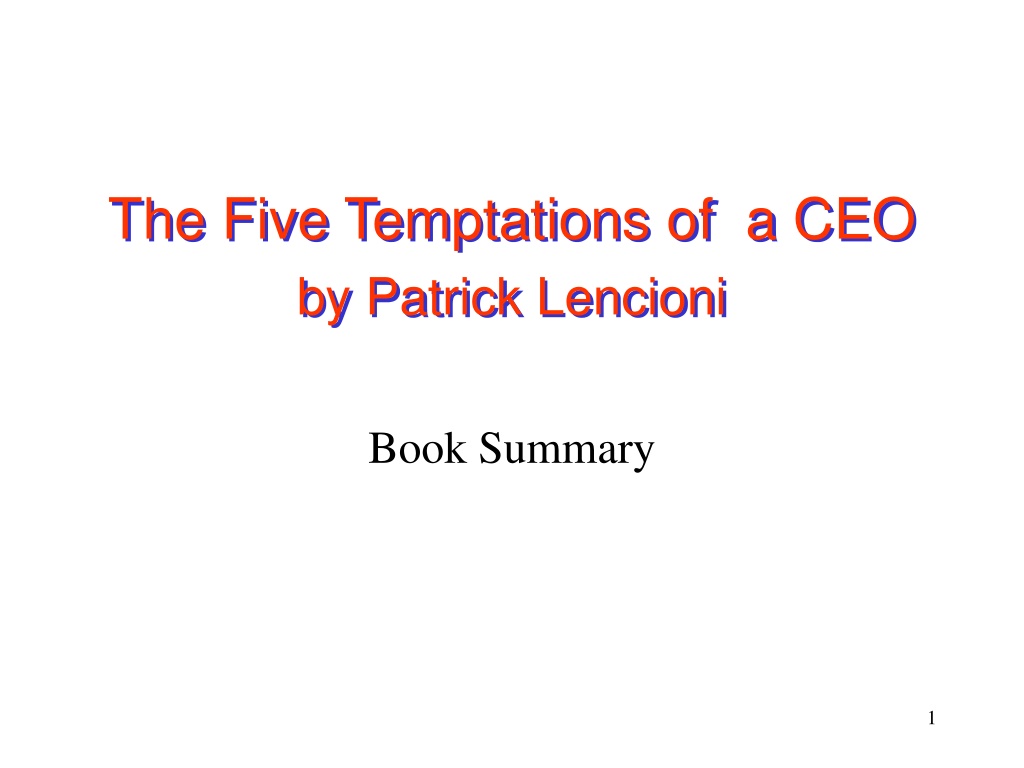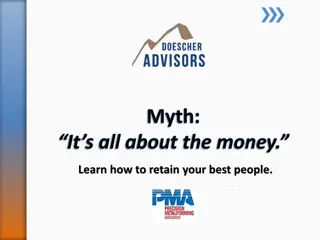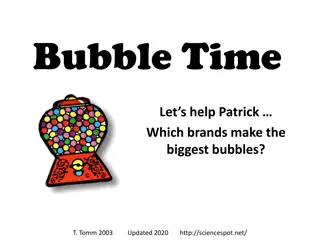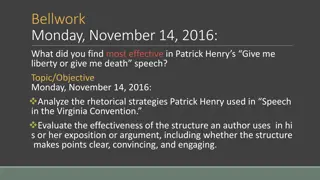Overcoming The Five Temptations of a CEO by Patrick Lencioni Summary
The book "The Five Temptations of a CEO" by Patrick Lencioni explores common pitfalls that CEOs face, such as choosing invulnerability over trust, harmony over productive conflict, and certainty over clarity. Lencioni emphasizes the importance of admitting weaknesses, embracing conflict for better decisions, and focusing on clarity rather than certainty. These temptations can hinder a CEO's effectiveness and organizational success.
Download Presentation

Please find below an Image/Link to download the presentation.
The content on the website is provided AS IS for your information and personal use only. It may not be sold, licensed, or shared on other websites without obtaining consent from the author. Download presentation by click this link. If you encounter any issues during the download, it is possible that the publisher has removed the file from their server.
E N D
Presentation Transcript
The Five Temptations of a CEO by Patrick Lencioni Book Summary 1
Overcoming the Five Temptations Temptation 1 : Choosing invulnerability over trust Do you have a hard time admitting when you re wrong? Do you fear that your direct reports want your job? Do you try to keep your greatest weaknesses secret from your direct reports? Rationale Great CEOs understand that an organization s results, not the appearance of being smart, are their ultimate measure of success CEOs should put their weaknesses on the table and invite others to help them minimize those weaknesses Admitting weaknesses must be sincere -- CEO s must be willing to tolerate a degree of fear and pain 2 Source : Lencioni, Patrick. The Five Temptations of a CEO. San Francisco : Jossey-Bass, Inc. Publishers. 1998.
Overcoming the Five Temptations Temptation 2: Choosing harmony over productive conflict Do you prefer your meetings to be pleasant and enjoyable? Are your meetings boring? Do you get uncomfortable at meetings if your direct reports argue? Do you often make peace or try to reconcile direct reports who are at odds with one another? Rationale Every meeting has conflict -- productive executive meetings should involve passionate, critical discussions that leave the participants feeling exhausted If a CEO consistently makes peace between impassioned executives during meetings, then executives will begin to think that pleasant, agreeable (and boring) meetings are preferred to productive ones 3 Source : Lencioni, Patrick. The Five Temptations of a CEO. San Francisco : Jossey-Bass, Inc. Publishers. 1998.
Overcoming the Five Temptations Temptation 3 : Choosing certainty over clarity Do you pride yourself on being intellectually precise? Do you prefer to wait for more information rather than to make a decision without all of the facts? Do you enjoy debating details with your direct reports during meetings? Rationale A CEO s success has more to do with personal and behavioral discipline than with intellectual skills Debates over the finer points of decision making wastes time and creates a climate of excessive analysis and over-intellectualization of tactical issues CEO s cannot afford to be overly precise 4 Source : Lencioni, Patrick. The Five Temptations of a CEO. San Francisco : Jossey-Bass, Inc. Publishers. 1998.
Overcoming the Five Temptations Temptation 4 : Choosing popularity over accountability Do you consider yourself to be a close friend of your direct reports? Does it bother you to the point of distraction if they are unhappy with you? Do you often find yourself reluctant to give negative feedback to your direct reports? Do you water down negative feedback to make it more palatable? Do you often vent to them about issues in the organization? For example, do you refer to your staff as we and other employees as they ? Rationale CEO s must be able to separate the success of personal relationships from their sense of self-esteem and personal happiness The slightest reluctance to hold someone accountable for their behavior on account of friendship can lead to negative reactions from others who perceive it as unfairness or favoritism Venting frustrations to direct reports can lead to politics among the executive team and undermine the team s objective understanding of their own actions 5 Source : Lencioni, Patrick. The Five Temptations of a CEO. San Francisco : Jossey-Bass, Inc. Publishers. 1998.
Overcoming the Five Temptations Temptation 5 : Choosing status over results Do you personally consider it a professional failure when your organization fails to meet its objectives? Do you often wonder, What s next? What will I do to top this in my career? Would it bother you greatly if your company exceeded its objectives but you remained somewhat anonymous relative to your peers in the industry? Rationale Organization success and personal-professional success are one and the same CEO s must ultimately judge their success by the results on the bottom line Pronounced concern for the next step indicates that success is being measured in terms of career advancement rather than current performance Successful CEOs are ones that do not worry about public recognition - they focus on achieving results and are praised accordingly 6 Source : Lencioni, Patrick. The Five Temptations of a CEO. San Francisco : Jossey-Bass, Inc. Publishers. 1998.
Overcoming the Five Temptations Source : Lencioni, Patrick. The Five Temptations of a CEO. San Francisco : Jossey-Bass, Inc. Publishers. 1998. 7

























